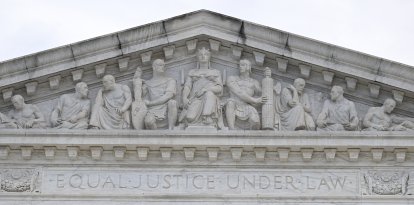Texas bans citizens and companies from China, Iran, North Korea and Russia from purchasing property in the state
The southern state joins others, including Florida and Indiana, in imposing such bans. Meanwhile, the U.S. Congress is considering measures to restrict property acquisitions on American soil by nationals of adversarial countries.

Texas
Texas Governor Greg Abbott on Monday celebrated the passage of what he called the 'toughest ban in America' on the sale of private property to nationals and companies from China, Iran, North Korea, and Russia.
Signed into law Friday alongside 333 other bills passed by the Texas Legislature, SB 17 prohibits government entities, companies, and individuals from those countries from purchasing farmland, mines, quarries, businesses, industries, residential buildings, and more.
It also requires the attorney general to set up procedures to review cases individually and, if violations are found, imposes penalties ranging from property forfeiture to economic sanctions and prison sentences.
Sabotage, cyberattacks, infiltration—the new law’s text outlines malicious activities carried out by each of the four countries on U.S. soil and highlights their increasing cooperation, which it says amplifies the "threats from each."
"This legislation will ensure that hostile nations do not control Texas’ most precious assets," said Senator Lois Kolkhorst, the bill's sponsor, after it passed the state Senate. "This is a matter of national security."
Opposing activist groups, however, describe the bill very differently. "We will not stop until we end this racist and discriminatory bill," vowed Asian Texans for Justice. Supporters, on the other hand, say it will protect the state while ensuring "those fleeing oppressive regimes can still find a home in Texas."
A "flexible" list
The four countries were chosen because they appear on the Annual Threat Assessment (ATA) from the Director of National Intelligence, currently Avril Haines. Supporters of the law say this guideline provides "flexibility," to update the list as international relations evolve.
With the same objective, the Senate added paragraphs to the legislation allowing the governor to modify the list of countries. The amendment also expanded the targets to include transnational criminal organizations, in addition to countries.
The regulation will take effect on September 1.
SB 17
SB00017F by Santiago Adolfo Ospital
Santiago-Adolfo Ospital#from_embed
Similar bills across the country
Earlier this month, Arizona Governor Katie Hobbs vetoed a legislative proposal that would have restricted the sale of land near strategic assets, such as military bases, to China.
Hobbs criticized the Republican measure, calling it riddled with “loopholes,” a “weak-on-China bill,” and noting it made no mention of other adversaries. Just a week later, she introduced a similar proposal that includes China, Russia and North Korea.
States such as Florida, North Dakota, South Dakota, Indiana, Nebraska, Virginia, Utah, Iowa, West Virginia, and Montana have passed similar measures, according to Newsweek. Others, including Ohio, Michigan and Georgia, are considering following suit.
At the national level, similar proposals have also been introduced. “One acre of American farmland owned by the Chinese Communist Party is one acre too many,” said Senator Katie Britt, co-author of a bill currently aiming to pass both chambers.
"The CCP’s strategic acquisition of farmland, particularly near our military installations, isn’t just a national security risk, it is a threat to our economic and food security," she added while announcing the legislation.

























